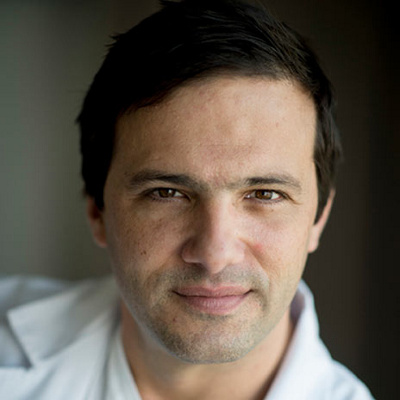Dr. Marc Saudan specializes in hip and knee surgical treatments. Co-founder of La Colline Centre de la Hanche et du Genou, he has been consulting and operating at Hirslanden Clinique La Colline for 15 years. Here he gives us his answers to our 3 questions, tinged with empathy and the desire to always improve operating techniques in order to help patients regain their mobility and well-being on a daily basis.
Why did you choose to be a surgeon and specialize in orthopedics?
At the beginning of my university education, I undertook engineering studies. However, a loved one being affected by the disease, I decided to reorient myself in medicine. When choosing my specialization, orthopedics presented itself to me as obvious, as close as possible to my aspirations. I am passionate about this specialty that allows me to both understand and influence the mechanics of the body and its joints.
How does your work concretely influence your everyday life?
Orthopedic surgery is extremely rewarding. It allows patients to regain their functional autonomy as well as independence in their daily lives. As a surgeon, I am very satisfied with allowing my patients to regain control of their mobility through surgery. However, the Covid-19 pandemic context does not facilitate my activity.
Indeed, patients are worried, show reluctance to consult, which delays their care and significantly alters their quality of life. With the aggravating factor of age, they weaken more and more. My role is currently to reassure them and show them that the care structures have adapted for their health security, in order to be able to give them back their functional autonomy despite this tense context.
What is your biggest challenge in your profession?
Orthopedic surgery, and especially prosthetic surgery, benefits enormously from technological developments. Openness to cutting-edge technologies is essential in my profession and I am constantly aware of technological innovations. I have also recently become interested more specifically in robotic assistance, which makes it possible to assist and refine gestures in the operating room.
Indeed, even if knowledge of operating techniques is essential, robotic assistance provides additional help. In the case of prosthetic surgery, the appearance of assisted navigation can be compared to GPS in our daily lives: it is not necessary to have a GPS to find the correct address. However, the usefulness of this system means that even taxi drivers use it to save time. Robotically assisted surgery will likely tend to be equivalent to autonomous driving, still requiring the surgeon's control, but will allow him to be more consistent in his practices.
Interview by Julie Landaut.
Dr. Marc Saudan

